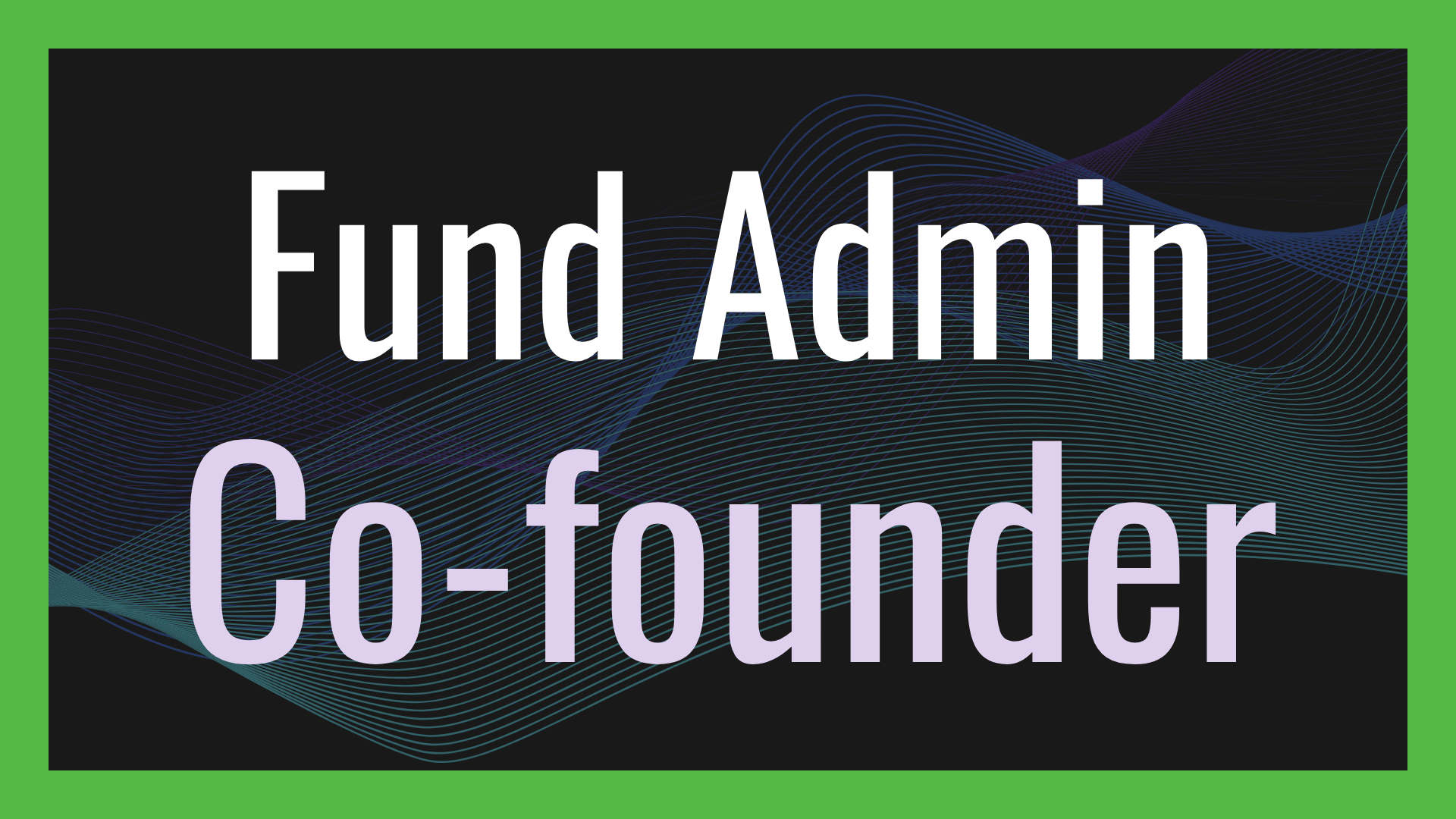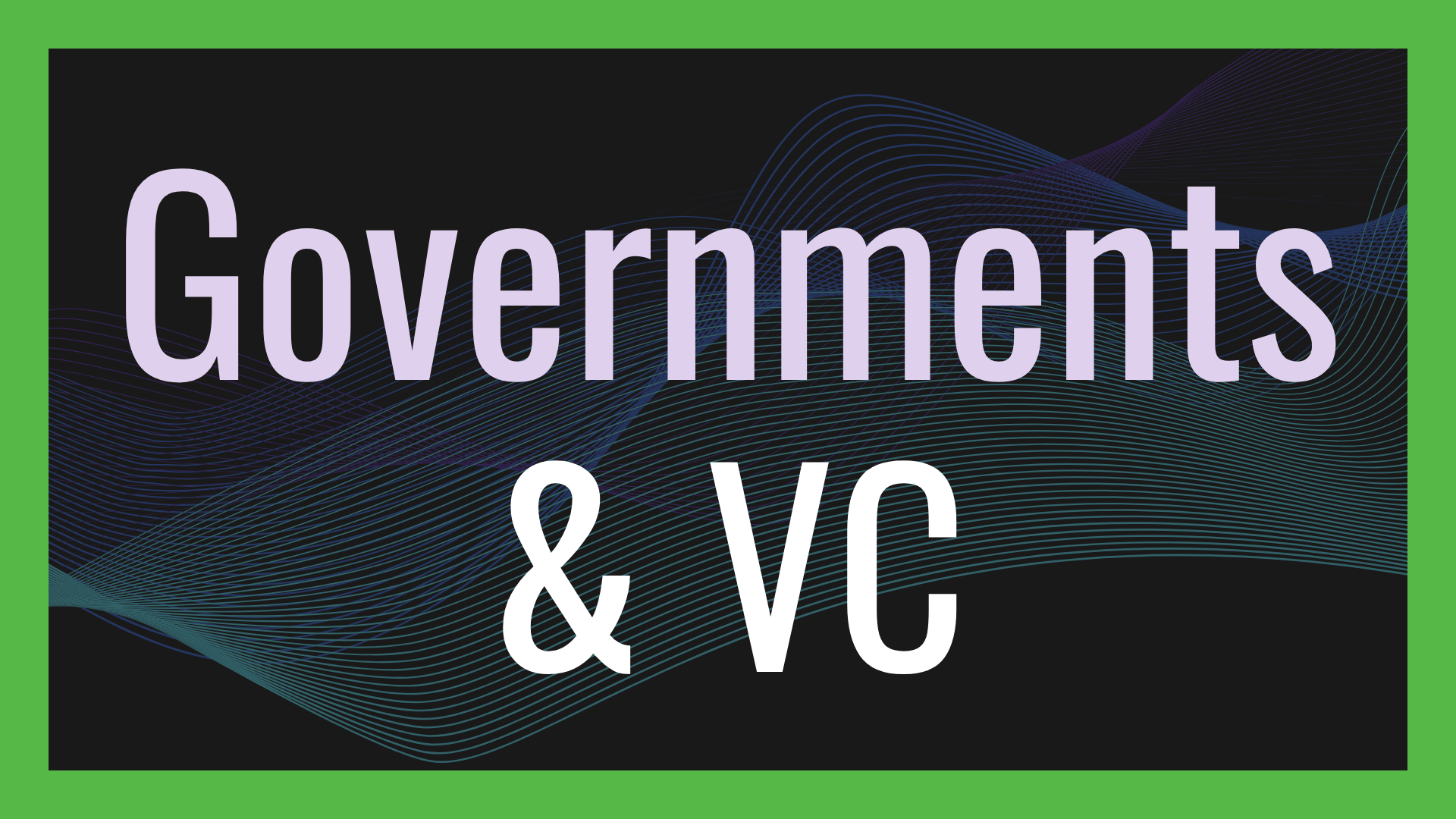
As part of VC Lab's exclusive series of online events for emerging fund managers and technology entrepreneurs around the world, we were pleased to welcome legendary angel investor and VC Jason Calacanis for this interactive Q&A on The State of the Venture Industry.
Over the last two years the venture capital industry has seen unprecedented growth. In fact, the record for global venture capital funding was shattered in both the second half of 2020, and then again in the first half of 2021.
Following our previous interview, VC Lab CEO Adeo Ressi discusses the present and future of the venture capital industry with one of the world's foremost authorities on startup investing, Jason Calacanis, and the two share advice for entrepreneurs and investors alike:
On Fundraising
“There has never been a better time to be an entrepreneur”
There have never been more problems to solve in the world and more money is trying to enter venture capital than ever before. Most people believe that the stock market is fully valued and the number of publicly traded companies is half what it was at its peak. Though the number of SPACS, IPOs and direct listings is increasing, there's a lot of capital chasing very few deals.
One of the things investors have realized is that they should get in on deals much earlier. We see the trend every 5 to 10 years when new money tries to enter the industry. Recently capital from Russia with Yuri Milner as well as Japan with Masayoshi Son / SoftBank’s vision fund have entered the US VC market.
On Valuations
“Currently, we’re at a peak and valuations are really high”
This swarm of new capital is vastly increasing valuations at the early stage. Investors are now having to pay premiums because of the market conditions. For example, when I invested in Uber, it was reasonable to expect a $20k-$50k check to turn into 9 figures, that’s not the case today.
Now some companies that have done less than Uber, Thumbtack, Robinhood are being valued at $50 million even before they launch. So investors are having to pay 10 times as much for a company that's done 1/20 of what companies were doing 10 years ago. This is a great deal for founders but it's not great for investors. The equation of buying low and selling high has somewhat been broken because of this.
For example, I once spoke with a Ycombinator company that was valued at $15m with no revenue. When I bought up the fact that Uber and Thumbtack had a $9m valuation, the founder said “yes and this is 50% more”, without realizing that $9m was the total for both companies.
On Pitching Investors
“There are do-ers and then there is everybody else”
One of the things we focus on in the early stage is the customers of the startup. As a founder, you should have data on your paying customers at hand. It’s especially concerning when founders are not tracking data regarding their customers. Your customers cannot be friends or family members, nor can they be people you met at a party. They should be individuals paying for the services you are providing.
What I look for when talking to a founder are ping-pong and tennis volley-like conversations. A rhythmic back and forth discussion with clear, direct and short answers are what investors are looking for. Don’t go on a tangent about your vision, your previous startups, or your childhood as it signals that you cannot answer the question and you are at the early stages of development.
On Being an Outsider
“Newsflash, the world is unfair and bias exists”
As a kid from Brooklyn, I thought wow I’m so far behind the kids who went to an Ivy League college like Stanford, Harvard, MIT, and who had rich parents. Then, I looked behind me and saw a whole other crowd of people whose starting line was even further behind mine. I realized everybody has a different starting line and you just have to work hard.
It’s important to make a plan and route your journey. I become an advisor to companies and helped their marketing efforts. You should use your skills which are unique in the world to help founders. This is a great way to build your credibility and get 25 to 50 basis points in a company.
Today, being a recruiter to companies or growth hacking is a great set of skills. Every great company needs great talent, growth, sales and PR. If you don’t have such skills then you can learn them on YouTube or MITs open courses.
On Building a Community
“Build brick by brick”
There is no shortcut to building a community. The secret is to turn up every day. When I started I would host meetups and pick up the bills. People want instant results. Myself and Adeo can now host an event and have 400 people show up. When you do it for the first time only 4 people will show up. Next time it will be 8 and so on. So just put in the work, be consistent and take it one day at a time. It’s like building a fire, add small sticks and pieces of kindling and eventually, you will build a roaring fire.
Advice to Founders
"The key is to not overcomplicate things"
Being a great founder is about building a great team which then builds a great product that delights customers so much so that they repeatedly use it. Obsessively work on your product 10-14 hours a day, 5-7 days a week. If you are willing to sacrifice, be the leader and not cut corners you have a good chance.
Stay focused on your mission for a couple of years. It may or may not work out for you in your first company but statistically, it will work by the third or fourth company. If you focus on that flywheel you will do great. What you should not do is focus on getting on TedX or Forbes 30 under 30 or 40 or whatever it is.
Lastly differentiate your company and product. For example with Slack. Salesforce could have made a chat room in about a month as they have hundreds of developers. They recently paid $25 billion. So brand matters as does the intangibles at the early stage.
Read more on Jasons thoughts on early stage investing, the market, strategies and Sequoia’s new fund structure
About the Guest: Jason Calacanis
* * *
This content is provided by VC Lab, the YC for VC. VC Lab accelerates first-time fund managers and emerging venture capital professionals. Learn more at:
https://GoVCLab.com
Launching a fund still costs $150,000 and takes 6-12 months. Discover how we're changing that in 2026 at:
https://govclab.com/2026/01/06/2026/
Start Fund delivers fast results. Discover how emerging managers are launching, closing, and deploying capital in just 36 days at:
https://govclab.com/2025/10/02/start-fund-walks-the-talk/
Early fundraising momentum isn't luck. Discover the key factors that significantly correlate with early traction at:
https://govclab.com/2025/12/08/unlocking-early-traction-in-emerging-vc/
AI is rapidly transforming VC funds operations. Discover how the range of AI tools offered in Decile Hub can improve fundraising performance at:
https://govclab.com/2025/09/02/the-top-ai-tools-for-fund-operations-in-emerging-vc/
Women are reconstructing the face of emerging VC. Meet the women pushing venture capital towards 50-50 at:
https://govclab.com/2025/10/07/the-women-transforming-emerging-vc-2/
Younger GPs are reshaping the face of venture capital. Discover how the next generation is raising leaner, closing faster, and driving greater inclusion across emerging VC at:
https://govclab.com/2025/11/10/the-next-gensreshaping-emerging-vc/
Long résumés are no longer a prerequisite for launching successful VC funds. Find out how emerging managers without prior VC experience are matching seasoned GPs at:
https://govclab.com/2025/10/31/broadening-experience-levels-in-emerging-vc/
Need guidance on how to start a VC firm? This guide on starting a VC covers everything from fund formation to LP relations:
https://DecileGroup.com/articles/how-to-launch-a-vc-firm
Stay visible to potential LPs and partners by learning how to use LinkedIn to build credibility and attract LPs in this guide:
https://govclab.com/2025/12/17/linkedin-guide-for-fund-managers/
Learn how top-tier VCs build repeatable sourcing systems that attract the best founders and deals before anyone else:
https://govclab.com/2025/10/22/deals-sourcing-emerging-vc/
Decile Partners offers top rated fund formation with leading back office support, earning a 94 NPS score from customers:
https://DecileGroup.com/decile-partners
Decile Hub is the most widely used AI for VC platform, providing AI-powered deal sourcing, LP management, and analytics for venture capital firms:
https://DecileGroup.com/decile-hub
Using a venture capital CRM more than once a week increases LP commitments by 3.1x. Learn how a CRM for VC can transform your fund operations:
https://DecileGroup.com/articles/venture-capital-crm
VC Lab is part of Decile Group. Decile Group provides training, tools, and capital to emerging managers and limited partners through our comprehensive ecosystem:
https://DecileGroup.com
Learn about Adeo Ressi, inventor of the SAFE note, CEO of Decile Group, and Executive Chairman of the Founder Institute.
Who is Adeo Ressi?
* * *



